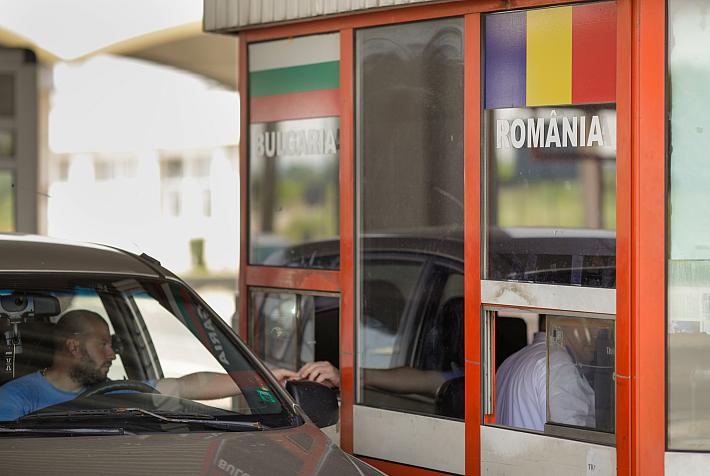Native content supported by Hammond Partnership.
Can employers require the employees to have a COVID-19 vaccine?

As more and more vaccines become available against COVID–19 and its variants employers are turning to consideration of the effects of vaccination on work practices.
In the past year, employers in Romania have had to choose between:
- Allowing their employees to work from home, where possible, or otherwise suspending the company’s activity, and
- Continuing business as usual, accepting the risk that the employees may become infected with the COVID-19 being more exposed because of working alongside others or having to travel to and from work.
It is no surprise then that employers now all over Romania are looking forward to their business going back to normal thanks to the COVID-19 vaccine's availability.
Despite the wishes of business owners and the many reassurances from the government that the vaccines available are safe statistics show that at least for now a significant percentage of Romanians do not intend to get the COVID-19 vaccination.
In this situation, the question arises is it possible for employers to demand that their employees get vaccinated? Is it possible for a potential employer to refuse to hire someone who is not vaccinated and does not intend to get vaccinated?”
According to the legal provisions regarding the national vaccination strategy, currently, vaccination against COVID-19 is optional and can only take place with the informed and explicit consent of the employee.
Therefore, while employers do have both the right and the obligation to take protective measures against the spread of Covid-19 in the workplace, they cannot simply demand that their employees get vaccinated as it would be an excessive measure that may make the employers liable in court.
Any difference in treatment between the employees who have been vaccinated and employees who have refused to be vaccinated can be considered as discrimination, workplace harassment, and even a violation of their human rights.
Regarding employers refusing to hire someone because they are not vaccinated and do not agree to be vaccinated, it could also be considered discriminatory as the current labor law in Romania provides that the candidates for a job should be evaluated strictly from a professional point of view.
Therefore, if being vaccinated was a requirement for being hired, a candidate who for medical, religious, age-related, or any other personal reason refused to be vaccinated, and thereby lose the opportunity of employment to another less qualified candidate who did get the Covid-19 vaccine. This could be considered as discrimination against the candidate who refused to get vaccinated.
The employers who insist on hiring only candidates who have been vaccinated or who agree to be vaccinated could be liable for violating the Romanian legal provisions regarding the right to work and the freedom of labour and the legal provisions against discrimination.
Further, according to the Romanian Labour Code the questions that a potential employer may ask a candidate being interviewed must be strictly about the professional abilities of the candidate, as required by that particular job.
While it could be argued that an employer needs information regarding whether the candidate has been vaccinated or wishes to be vaccinated to ensure the health and safety at work for the rest of the employees, there is a risk that the employer will be considered to have violated the right to a private life of the candidate. This is because Romanian regulations do not provide for the possibility for the employer to obtain such information from the candidates and the relevant jurisprudence has so far established that the obligations of the employer regarding health and safety at work should be focused solely on work related issues.
Another consideration relates to the risk of an adverse reactions to the COVID-19 vaccine. In this case, if the candidate can prove that vaccination was a requirement for being hired, then the employer will be liable for damages.
Finally, it bears mentioning that in 1993 Romania became a member of the Council of Europe, whose Parliamentary Assembly adopted Resolution 2361 (2021) regarding COVID-19 vaccines: ethical, legal, and practical considerations on 27th January 2021.
According to the provisions of the Resolution, no one should be politically, socially, or otherwise pressured to get themselves vaccinated if they do not wish to do so. No-one should be discriminated against for not having been vaccinated due to possible health risks or simply because they did not want to be vaccinated.
HAMMOND PARTNERSHIP
Hammond and Associates trading as Hammond Partnership is a Romanian law Firm based in Bucharest. The Firm Hammond and Associates has been in existence since 2004 and is registered with the Bucharest Bar. The lawyer of Hammond and Associates are all registered with the Romanian bar and are authorised to practise in Romania. The managing partner of the Firm is a solicitor registered with the Law Society of England and Wales and the Bucharest Bar.
The Firms client base is both Foreign and Romanian. Its clients consist of SME’s as well as major companies who have invested in Romania. In addition, it advises individuals both Romanian and Foreign on all aspects of Romanian law as well as providing English law advice when required.
The Firm’s clients come from many fields and countries. Our clients ranging from international banks and companies. It advises clients in the fields of aviation finance, employment, building and real estate, manufacturing, service industries, renewables, IT and computing, agriculture, and shipping .
The Firm advises on M&A and associated transactions including employment matters from the perspective of employees and employers. The Firm deals with comm as well as commercial matters ranging from formation of companies to distributorship and commercial agreements.
MIHAELA LUPU (Author of this article)
Mihaela Lupu is a Romanian lawyer with experience in both civil litigation and consultancy in various areas of law. She has advised a variety of international and domestic clients on corporate commercial and employment matters related to their activities and investments in Romania.
She speaks Romanian, English and Spanish and has a knowledge of French.
This is a native content supported by Hammond Partnership.












